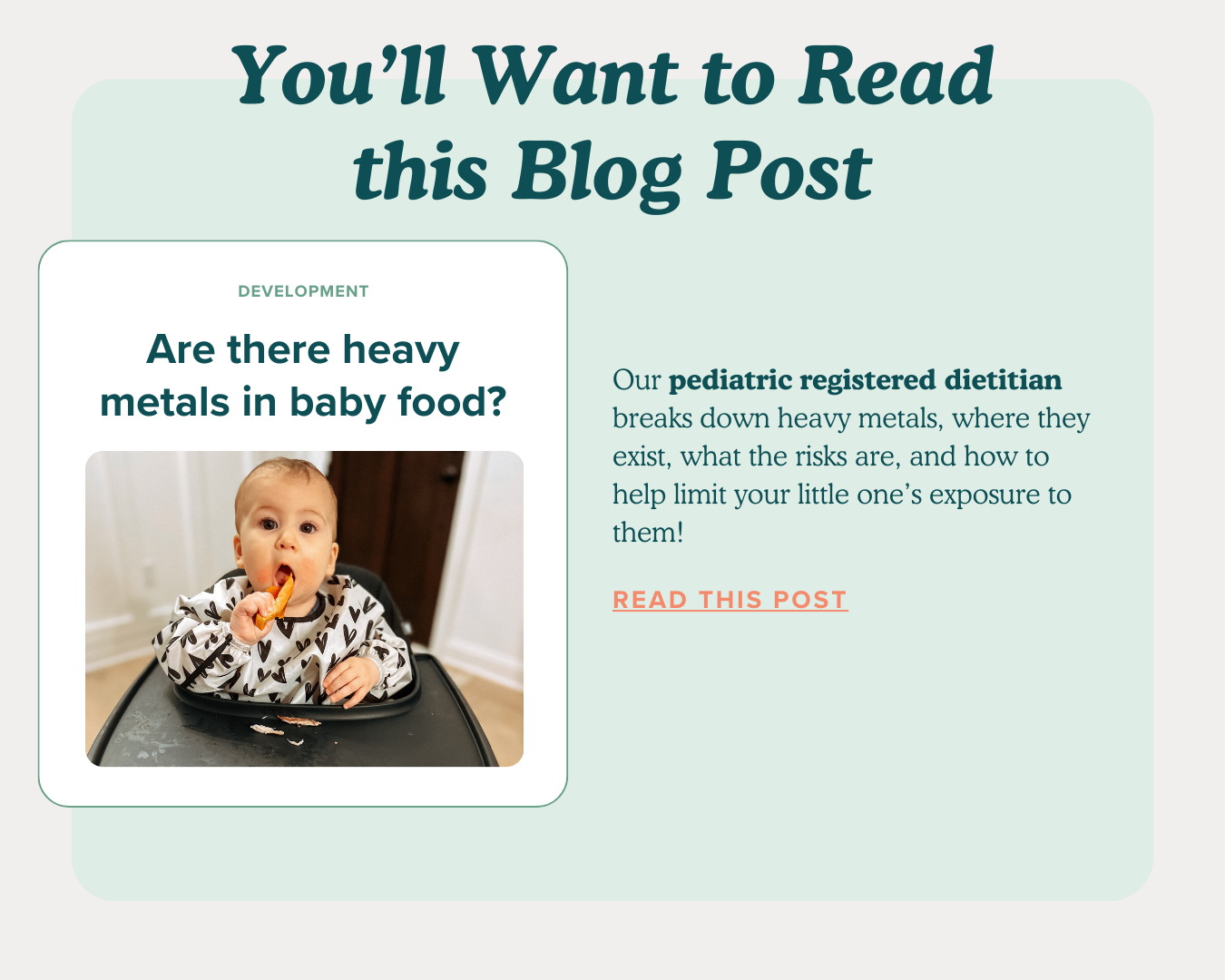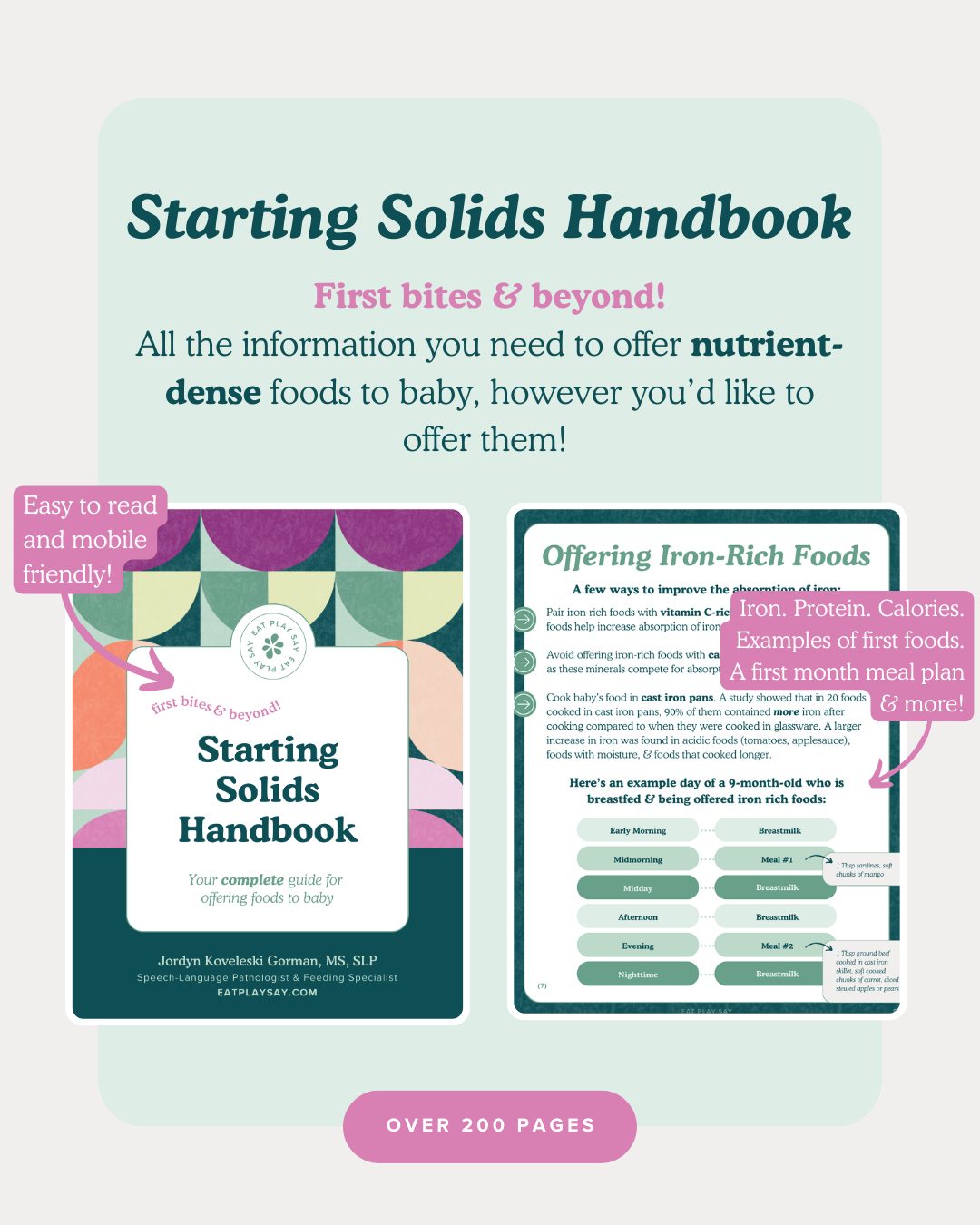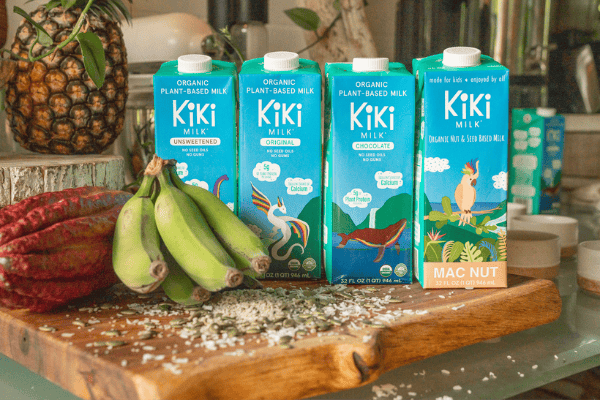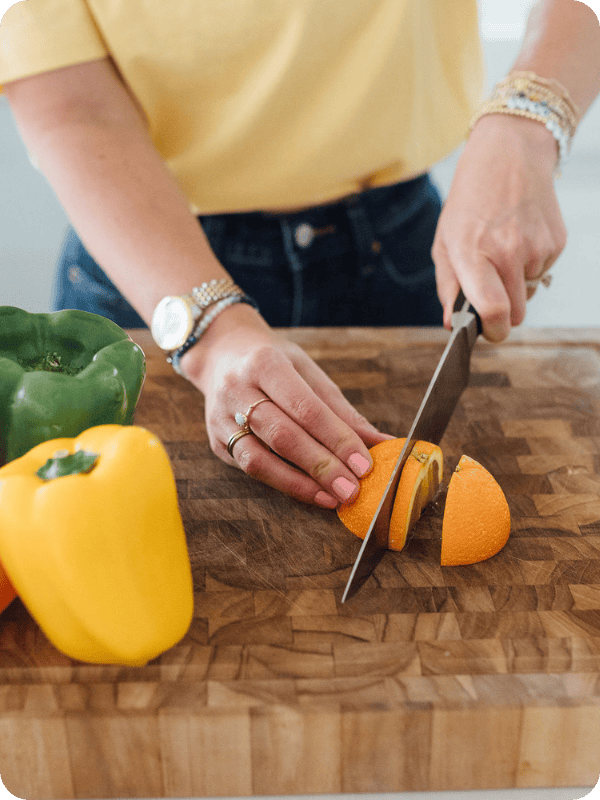This page contains affiliate links. We will receive a commission on qualifying purchases using these links.
More and more pediatricians are catching on to the fact that recommending rice cereal as a first food for babies is outdated advice and not the best option. Rice cereal has previously been the top first food recommendation when starting baby on foods. Why? Mainly because it is unlikely to cause an allergic reaction and it is iron-fortified. But guess what? There are many other wholesome real food options that will give your baby a more bioavailable source of iron and are also unlikely to be allergenic. Also – it’s actually a great idea to start feeding baby the top allergens when starting solids anyways, because we know that early and often introduction can help prevent food allergies. So, we shouldn’t be avoiding them!
You can find more information about foods high in iron here and how to introduce allergens here, but let’s go through some of the main reasons rice cereal is not the best first food for babies.
Rice Cereal Is High In Arsenic
Arsenic is a heavy metal, and we know that there are a handful of foods that are naturally higher in arsenic because of the way they are grown. Yep, rice is one of them. Infant rice cereals in particular are high in inorganic arsenic, which is the most toxic type of arsenic. There is really no amount of arsenic that is “safe” for babies to eat, so the goal should be to reduce exposure as much as possible. According to James Rogers, Ph.D., Director of Food Safety and Research at Consumer Reports, “Even exposure to low levels of ‘inorganic’ arsenic…in infant rice cereal can have a damaging effect on baby’s developing IQ and neurodevelopmental system”. (1) The cumulative exposure of arsenic is “linked to behavior problems, ADHD, lower IQ, and increased risk for skin and bladder cancer”. (2)
Many companies have stopped making and selling rice cereal because they were criticized so heavily for the amount of arsenic in their cereals, while the two main companies selling rice cereal today, Gerber and Earth’s Best, have lowered the amounts of arsenic in their cereals. According to tests done by Consumer Reports, the lowered amounts of inorganic arsenic found in these cereals is still too much. (2)
Other baby cereals that are not rice based, such as oat based cereals, are significantly lower in arsenic and are a good alternative option.
Most Rice Cereal Is Fortified With Synthetic Iron
You’re probably wondering why this made the list – isn’t it a good thing to give babies more iron? Well, yes and no. Not all iron is created equal. The synthetic iron that rice cereal is fortified with (usually ferrous fumarate) is quite different from the naturally occurring iron found in breast milk and iron-rich foods, which is more bioavailable (more effective), easily absorbed, and less likely to cause unwanted gastrointestinal symptoms, like constipation. When starting solids, you should be prioritizing iron-rich foods, and you will get a lot more bang for your buck with foods that are naturally rich in heme iron, such as a meat puree or liver pate.
White Rice Is A Low Nutrient Refined Grain
White rice cereal is a highly processed food, with most of its nutrients removed from the refining process. This is why most rice cereal is fortified with synthetic nutrients. So, it is basically a nutrient poor, refined carbohydrate which has the potential to spike blood sugar when served without additional fat, protein or fiber. (3)
Also, a really interesting fact that most people don’t know is that grains are the hardest for babies to digest in the first year because babies don’t produce adequate amounts of the enzyme pancreatic amylase that is needed for digestion of grains until around 1 year old. (4)
Because of this, it could be a good idea to think about limiting grains (e.g., rice, oats, quinoa, etc) in the first year and instead focus on the easier to digest and more nutrient dense fats and proteins. (4)
Does Rice Cereal in the Bottle Help Baby Sleep Better?
All you have to do is start complaining about your baby’s sleep and you will inevitably get some unsolicited advice about adding rice cereal to your baby’s bottle so they will stay “fuller longer and sleep better.” Or maybe you’re trying to fix reflux issues, and you heard the myth that rice cereal in a bottle helps stop reflux. Whether your baby is 4 months old and has not started solids or is 7 months and has, there are so many issues with this unsafe and outdated advice. The AAP strongly recommends against adding rice cereal to bottles, as well. (5)
The main issues associated with this practice are:
-
Baby’s digestive system is not mature enough (for babies under 6 months)
-
Puts baby at an increased risk of choking
-
Potential for overfeeding
-
Impaired hunger self-regulation in future
-
Arsenic exposure from rice
-
Doesn’t necessarily help with sleep – young babies naturally wake up frequently because of their circadian rhythm
If your baby is struggling with reflux and is formula feeding, there are specialized anti-reflux formulas that you can try instead of thickening the bottle with rice cereal, such as HiPP Anti Reflux Formula or Enfamil Anti Regurgitation Formula.
There is also a stand alone thickener that can be mixed with breast milk or formula called Aptamil Feed Thickener. This should be used with guidance from a lactation consultant and be discussed with your pediatrician before use. Partially hydrolyzed formulas can also be an effective option for improving reflux symptoms, such as Kendamil Comfort Milk or Bobbie Organic Gentle Infant Formula.
If you want to include baby cereal in your little one’s diet, skip the bottle, wait till they are 6 months and offer it to them on a spoon.
Alternative Options to Rice Cereal
If you want to skip the rice cereal but would still like to introduce an alternative grain based cereal to your baby, the earliest age we would recommend is 6 months or older. An organic baby oatmeal would be a good choice. There are some made with no iron added if you wish to avoid giving baby synthetic iron and opting instead for real food iron sources. You can puree or mashed sweet potato to the cereal for an iron-rich natural food. Holle Organic and Amara Organics are two brands that make organic oat cereal for babies with no added iron.
You can also make your own cereal to give to baby with any grain you wish, such as oats, kamut, quinoa or millet. All you need to do is put your uncooked grain in a blender and blend/pulse until it is a finely uniform texture. Add ¼ cup uncooked grain + 2 cups water to a pot and bring to a boil. Simmer for 15 minutes. Adjust thickness of cereal with additional water or breastmilk/formula.
Focus on Real Foods
When your baby starts solids, they are likely going to be very receptive to new and different flavors and excited about eating. Fast forward to toddler years, and you’ll likely experience some bouts of picky eating and strong opinions. You have a great window of opportunity in the beginning to introduce a variety of flavors and textures, and someone’s gotta say it, but rice cereal is as bland as it gets. If you really want rice cereal or another baby cereal to be a part of your baby’s diet, sure you can offer it, but try to make it part of a varied rotation of other foods. We know that offering baby a variety of tastes and textures is the best way to raise a well-rounded eater!
For everything you need to know about offering baby their first bites and more, check out our Starting Solids Handbook:








